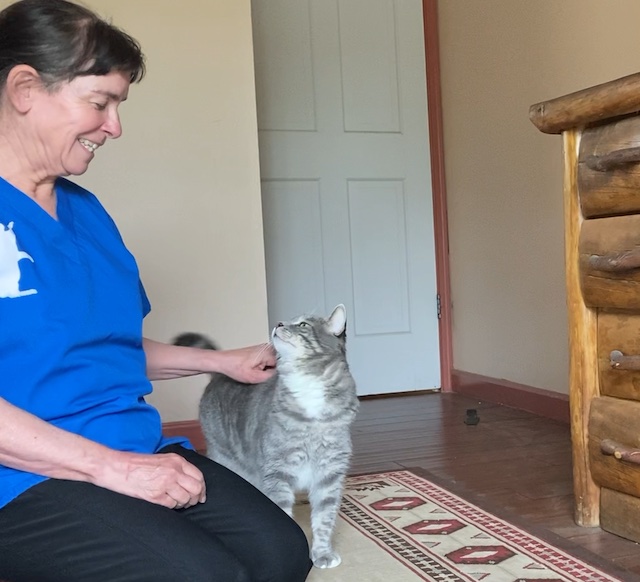
The stereotype of the aloof, independent cat is being challenged. Do our cats bond with us, their human caregivers? How does this attachment affect the well-being of our cats?
Studies into animal cognition suggest that cats show attachments to their caregivers, similar to those exhibited by human children and dogs.
Researchers at Oregon State University tested a group of cats and caregivers using The Secure Base Test. This test was developed to evaluate attachments to caregivers in apes and dogs; a variant is used with human children.
secure and insecure attachments
In the Secure Base Test for cats, a cat and his owner were placed in a strange room for 2 minutes. After 2 more minutes, the owner would leave and the cat would be alone. The owner would return in another 2 minutes.
Cats were described as “securely” attached and “insecurely” attached. About 2/3 of the cats were “securely” attached. These cats were willing to explore the room with their owners present and continue to explore after the owners left. When the owner returned, a “securely” attached cat would greet his owner but would continue to explore and play.
“Insecurely” attached cats were reluctant to explore and sat with their owners or hid in a corner. On return of the owners, some of these cats wanted physical contact with their owners while others avoided contact and did not seem to know what to do.
This makes me think of children at their first day of school – some kids are adventurous while others cling to their parents. So, it seems that our cats bond with us much like dogs and children.
Our personalities and our cats
Another study looked at how owner personality can affect a cat’s well-being. Over 3000 cat owners responded to a survey asking questions about the their personalities and how they characterized their cats’ behavior and health.
Owner personalities were evaluated using the Big Five test. The Big Five test assigns a score for each of the five traits below to describe an individual’s personality.
- Openness – willingness to embrace new experiences
- Conscientiousness – how responsible and organized a person is
- Extroversion – how social and outgoing you are
- Agreeableness – how cooperative, kind and trusting you are
- Neuroticism – prone to anxiety and depression
FINDINGS:
- Owners scoring high in the anxious (neurotic) category were more likely to have cats with medical and behavioral problems; these cats were often more aggressive, anxious or fearful
- Owners scoring high in openness, conscientiousness, extroversion, and agreeableness often had cats that were less fearful and anxious, and more friendly.
These results parallel human studies: Less anxious, open, and agreeable parents are able to provide their children with guidance and limits, without a controlling, authoritarian bias. Children are happier, cooperative, and have fewer behavior problems.
THE TAKEAWAY
- We can’t change who we are but we need to remember that because our cats bond with us, our moods and behavior, especially when we are stressed and anxious, can affect them.
- We need to avoid micromanaging our cats and let them be cats, doing the things cats do.
- We need to try to see the world from the “feline purrspective”.


K. Larnkjaer says:
Excellent article and full of insights.